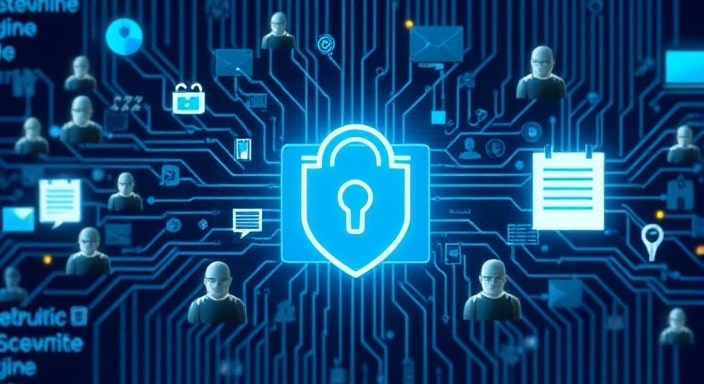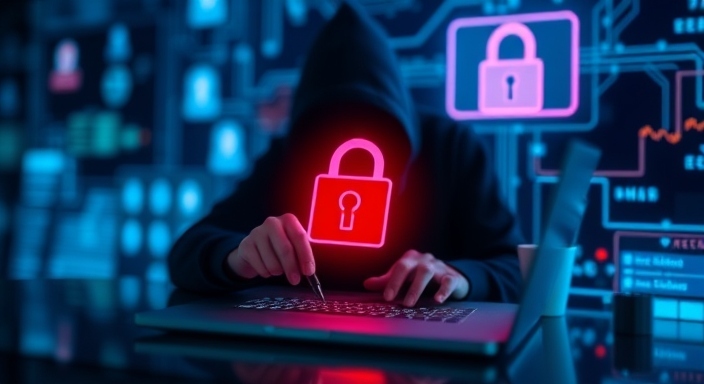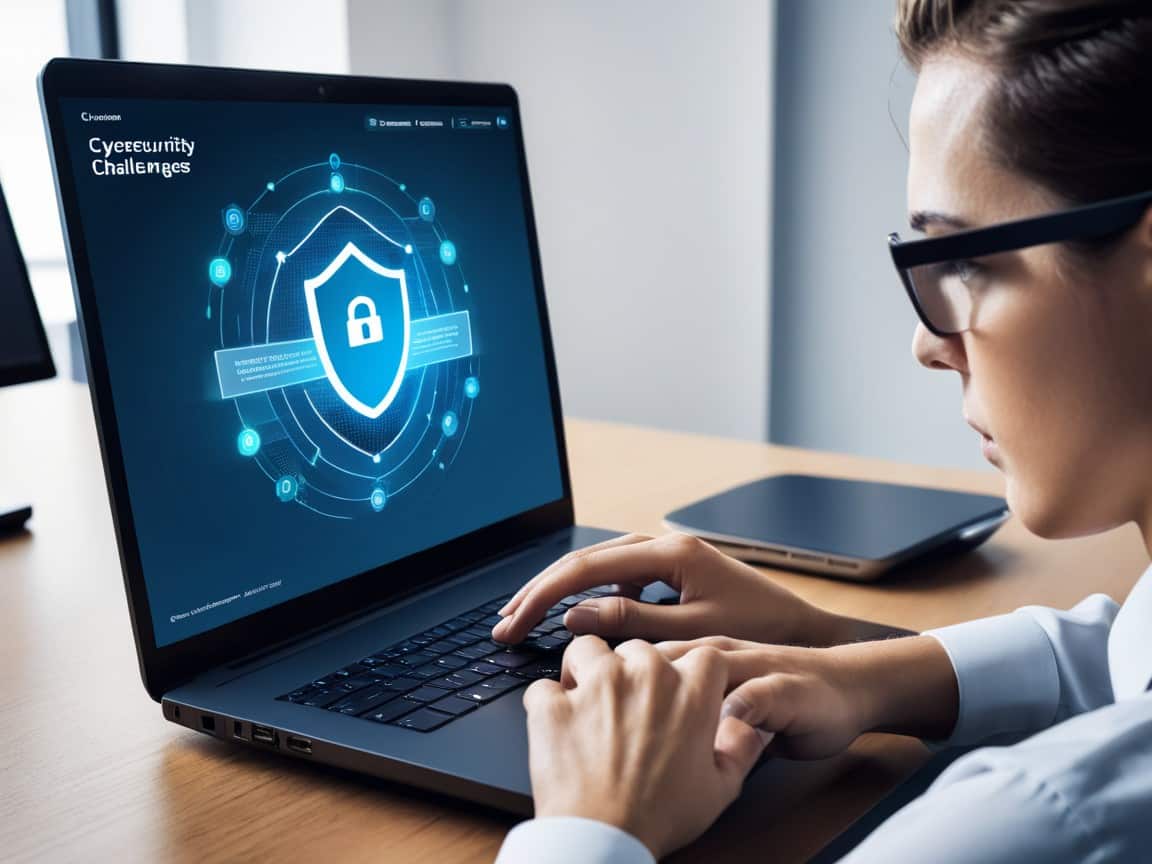Importance of Cybersecurity
With advancement in technology our lives, business, and societies have become highly dependent on digital systems. With increasing digital systems there is continues increase in sensitive data and information which needs to protected at any cost.1 Cybersecurity has become essential need of modern world for ensuring data protection, data privacy and maintaining the data records. Because with advancements in technology risks and prevalence of cyber attacks has increased to great extent.
Cybersecurity is Important in today’s digital world to ensure
- Protection of Sensitive Data
- Economic Implication
- Growing Cyber Threats
- Business Continuity and Operations
- Protection of Critical Infrastructure
- National Security
- Privacy Protection
- Remote work and Digital Transformation
- AI and IoT Weaknesses
- Compliance with Laws and Regulations
Protection of Sensitive Data
Cybersecurity has become very important in modern times, because all kind of digital data including personal data, financial information, and intellectual properties are the main targets of cybercriminals. Cybercriminals have become very smart and they always target for theft of information and then misuse it for various illegal activities. Cybersecurity has become very important to avoid loss of sensitive information, financial loss, or any kind of important customer data.
Economic Implications
Cyber attacks can result in serious financial losses. In 2023, the global average cost of a data breach was around $4.45 million. Similarly due to such financial losses cyberattacks can damage the reputation of companies. In these situations, cybersecurity is very important as it provides protection against such potential cyberattacks and can prevent major threats like financial loss or loss of reputation of companies.
Growing Cyber Threats
From last few years, Cyber threats are growing a double speed. Organizations and individuals are being subjected to ransomware, phishing, and malware attacks. Cyber criminals have evolved their tactics and techniques to attack people. In this situation updated cybersecurity has become very important to deal with this situation.
Business Continuity and Operations
Due to rapid cyber attacks business organization cannot continue their normal operations. Cybersecurity is essential to continue business operations without disruptions. Different cyberattacks has results in halt of operations, disruption of supply chains, loss of productivity and loss of confidence of customers.
Protection of infrastructure
Modern world has modern problems, today hospitals, transportation, finance, and corporate everything relies on digital systems. A small data breach can cause disastrous damage to whole infrastructure. For example, ransomware attack on hospitals can endanger lives, and cyberattack on power grid can disrupt essential services for entire communities.
National Security
Cybersecurity has become very important for National Security. Governments rely on cybersecurity measures to protect defense systems, intelligence, and sensitive government data from foreign adversaries. A cyberattack on government infrastructure can damage national security resulting in destabilization of economies.
Privacy Protection
Cybersecurity is important for protecting the privacy of common man. This includes protection of basic personal information like his contact no, national identity card details, bank details, address and etc.
Remote Work and Digital Transformation
After Covid-19 remote working has become a new normal. Now more people work from home and use personal devices to connect in meetings. These personalized devices are at higher risk of cyber-attacks. Cybersecurity is very important to ensure secure networking and to protect data during communications.
AI and IoT Weaknesses
Today almost devices are equipped with AI and IoT technology, the risks of unauthorized access and controlling of these systems have increased as well. Once these AI powered devices are hacked then it can result to such consequences which we have never imagined. Cybersecurity has become very important to prevent unauthorized access.
Compliance with Laws and Regulations
Government applies certain laws and regulation on different industries to have certain cybersecurity measures. That is why cybersecurity is also very important in this aspect as companies have to follow rules and regulations set by the governments.
Types of Cybersecurity Threats

There are different types of cyberattacks which are used by hackers to invade cybersecurity and compromise overall security and data of systems.2 Following are the major types of cyberthreats:
Malware
Malware is also known as malicious software. A malware attack includes viruses, worms, Trojans, ransomware, and spyware. Malware attacks steal data and cause harm to systems.
Phishing
Phishing is second most frequent and potential cyberattack. Phishing includes data breach or unauthorized access via fraudulent emails. In this attack hackers try to trick users through corrupt links within the emails and ger personal information and login credentials as well.
Denial of Service and Distributed Denial of Service Attacks
These attacks saturate a system or network with traffic, which makes that particular website unavailable for legitimate users. DDoS attacks are often conducted by botnets, large group of compromised computers working together.
Man-in-the-Middle Attack
As the name indicated Man in the middle attack includes hacker communicating between two communicators say guest and host. This type of cyberattack is also known as eavesdropping attack. By manipulating communication between two communicators hackers can steal important data and information.
SQL Injection
SQL injection is insertion of malicious SQL code into forms or URLs. Data-base driven websites are main prey of structured query language injection attacks. Hackers can get unauthorized access to sensitive data in the database.
Zero-Day Exploit
Hackers take advantage of any lacking or weakness within the network. Zero-day exploit attacks happens when authorities disclose the lacking or weaknesses within the network, then hackers take advantage of such vulnerable patches and try to hack the network.
Password Attacks
Password attacks involve steal or guess of user’s password. Hackers use several techniques like brute-force attacks, dictionary attacks, and credential stuffing. Hackers use stolen credentials from one platform to access other accounts.
Insider Threats
Insider threats is a kind of cyberattack which can occur anytime, because the attacker is someone from within the company or system. You can find multiple examples of insider threats attacks, and such attacks happens when attackers know every strength and weakness of the system and he can steal, leak or damage data.
Ransomware
Ransomware encrypts user’s files and makes them inaccessible for users. Attackers demand ransom for providing the decryption key. But in some cases, the ransom amount does not result in data recovery.
Cross-Site Scripting
Hackers insert malicious code or URL in a website, which gathers user’s data and information during browsing on that particular website. Hackers can get sensitive information like credit card details, passwords, and cookies.
Social Engineering
Social engineering is a very common cyberattack, in this crime attackers invite people to use certain apps which require sensitive information of registration like account details, CNIC card details and sharing passwords. Techniques include pretexting, baiting and impersonation.
Advanced Persistent Threats
Advanced Persistent threat is a long-term attack in which a hacker gains unauthorized access and remains undetected. Since the hacker remain undetected, that is why this kind of attack remains for longer period of time and cause continuous damage to an organization system or individual setup.
Download-Drive Attacks
As the name indicates these attacks occurs when a user visits a compromised website. User may download malicious code or malware files. In some cases, no user interaction is required but systems get hacked.
IoT Attacks
Internet of things devices are often less secure than traditional devices. IoT devices are more vulnerable to hackers. Where hackers exploit weak security measures, they suddenly take control of such devices and steal sensitive information.
Cryptojacking
In Cryptojacking hackers secretly uses people computer resource to mine cryptocurrency. Cryptojacking slows down host system and consume resources like electricity and computing power without permission and knowledge.
Cybersecurity Challenges face by Small Businesses

Small Businesses face multiple cybersecurity challenges. Poor cybersecurity parameters cause serious damage to small businesses. There are certain limitation and challenges faced by small business organizations which prevent them from adapting cybersecurity for smooth operations.3
Limited Budget and Resources
Cybersecurity is an expensive approach; small business often lacks the financial resources to invest in optimal cybersecurity defenses. Small business does not have enough staff and resources that can keep them aware of the evolving threats.
Poor Cybersecurity knowledge
Small business owners always focus on their prime competencies, they have little knowledge and awareness of cybersecurity practices. This poor knowledge leads to poor decision-making and they ignore cybersecurity compulsion for their business.
Outdated Software and Hardware
Small businesses often rely on outdated technology to reduce costs. Outdated technology provides outdated software and hardware which often do not support security updates. This situation leads to security vulnerabilities, making business easy target for hackers.
Inadequate Backup and Recovery Plans
Small business lacks proper backup and disaster recovery plan. In case of cyber-attack such business suffers a lot to restore its operations. Due to inadequate backup and recovery plan a minor cyberattack can damage complete functioning of business.
Continuously evolving Cyberattacks
Cyberattacks are increasing day-by-day with new shapes and complexities. Attackers are continuously changing their techniques and methods to hack systems. In this situation small business without advanced security tools cannot cop up with the situation and become soft target of hackers.
Employee Negligence and Insider Threats
This is a major problem with small businesses that their employees are not well informed and trained against cybersecurity threats. Unaware employees become easy victims to scams and become easy source to leak sensitive information. Such insider threats either intentional or unintentional are very common with small businesses.
What is Information Exchange in Cybersecurity?
Information Exchange in Cybersecurity refers to the sharing of data, insights, and threat intelligence. This information exchange can be between different organizations, government, and cybersecurity entities to further enhance and strengthen security defenses. This information sharing practice is very helpful and effective in detecting, preventing and responding to cyber threats.
Information Exchange in Cybersecurity Involves
Threat Intelligence Sharing
This includes sharing data on emerging threats like malware signatures, indicators of compromise and tactics techniques. Information regarding procedures and steps taken by cybercriminals is shared among organizations to prevent this threat in future.
Incident Report
Incident report is very useful practice in which organizations share information security incidents and cyberattacks they have faced. Incident report includes information exchange about nature of attack, response strategies and lesson learned from cyberattacks.
Vulnerabilities Information Sharing
If any vulnerability is identified in a system or software, then details about these flaws are shared with other organizations or entities who are using same system or software. So, they can secure their systems before exploitation occurs.
Best Practices and Guidelines
Information exchange in cybersecurity also includes sharing of best practices and guidelines. Many organizations exchange their best practices and recommendations for cybersecurity strategies, policies and compliance. This practice is also very helpful in safeguarding each other from cyberattacks.
Overall benefit of information sharing in cybersecurity is to develop quick response against cyberattacks. It helps to create a collective proactive approach against hackers. Small businesses employees should get Google cybersecurity Certifications to avoid possible cyber threats and attacks. These certified employees can train other colleagues regarding cybersecurity basics and this information exchange can very helpful for small businesses and organizations.
Conclusion
In conclusion, cybersecurity is a crucial part of today’s digital world. It protects sensitive data, keeps businesses running smoothly, and safeguards important systems. As cyber threats grow more advanced and technology becomes essential in everyday life, strong cybersecurity measures are a must.
Cybersecurity helps protect national security, personal privacy, and business operations. Small businesses face unique challenges like limited budgets and outdated tools, making them easy targets for cyberattacks. Sharing information about threats, best practices, and solutions can help everyone stay safer online.
As technology changes, so do cyber threats. Staying secure means being proactive, learning continuously, and working together. By investing in cybersecurity and spreading awareness, we can build a safer and more secure digital future.
